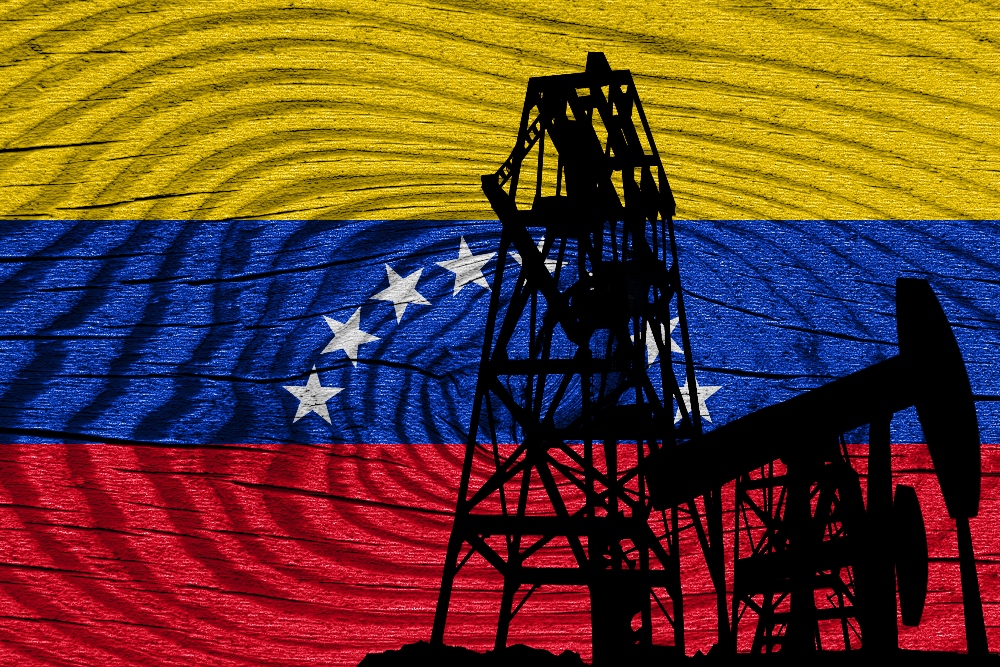In a bold move to enhance its global standing, Venezuela has proposed leveraging its vast oil reserves to gain membership in the BRICS group, comprising Brazil, Russia, India, China, and South Africa.
This push for inclusion comes amid significant political unrest and economic challenges within the country.
President Nicolás Maduro publicly affirmed Venezuela’s ambition to join BRICS during a recent broadcast of his radio show, “Con Maduro de Repente.”
‘Venezuela is being reborn both internally and externally’
Maduro described the move as a pivotal step towards connecting Venezuela with a new world order, emphasizing the country’s resilience despite facing sanctions and international aggression.
“Venezuela is being reborn both internally and externally,” he declared, reflecting a sense of optimism about the potential BRICS membership.
Foreign Minister Yván Gil echoed Maduro’s enthusiasm at the BRICS+ Foreign Ministers Meeting.
Gil highlighted Venezuela’s achievements and its potential contributions to the BRICS group, suggesting that membership would reinvigorate solidarity-based processes and continue the legacy of former leader Hugo Chávez’s vision.
He underscored that Venezuela’s integration into BRICS would be a strategic move against imperialism and neocolonialism.
Strengthening ties with Russia has been a key component of Venezuela’s strategy.
At the recent BRICS+ summit in Nizhny Novgorod, Russian Foreign Minister Sergey Lavrov and Venezuelan Foreign Minister Yván Gil signed an agreement to resist US sanctions, reflecting a deepening of Russo-Venezuelan relations.
This partnership aims to bolster economic and diplomatic support in the face of Western pressures.
Joaquín Pérez Ayestarán, Venezuela’s UN ambassador, expressed high hopes for the country’s BRICS membership, citing Venezuela’s extensive oil reserves as a valuable asset to the group’s collective resources.
He anticipates an official decision on Venezuela’s BRICS bid to be announced at the upcoming BRICS summit in Kazán, Russia, in October.
However, he acknowledged that if the bid is unsuccessful, Venezuela remains committed to participating actively in the international arena.
More about geopolitical strategy than immediate economic benefits?
Despite these ambitions, Venezuela faces several hurdles.
According to OPEC data, Venezuela’s oil production was 76,000 barrels per day lower than reported by the Oil Ministry in July, totaling 852,000 barrels.
This production shortfall highlights the ongoing challenges within the country’s oil sector.
Economist Henkel García from Econométrica suggests that Venezuela’s pursuit of BRICS membership is more about geopolitical strategy than immediate economic benefits.
He notes that the focus appears to be on gaining support from BRICS nations to strengthen alliances amidst shifting global dynamics.
García also points out that geopolitical maneuvers, such as aligning with countries at odds with the US, could have significant ramifications beyond mere economic considerations.
Meanwhile, Venezuelan economist Alejandro Grisanti is skeptical about the practical benefits of BRICS membership for Venezuela.
He argues that BRICS members are characterized by their large economies and populations, criteria Venezuela does not meet. Grisanti compares Venezuela’s economy to that of the Dominican Republic and its population to that of Panama and Costa Rica, questioning the potential economic impact of joining BRICS.
He views the potential membership more as a political gesture rather than a catalyst for significant economic improvement or higher credit ratings.
Venezuela’s push to join BRICS, driven by its oil reserves and strategic alliances, highlights a complex interplay of geopolitics and economic aspirations.
Whether this move will translate into tangible benefits or remain a symbolic gesture is yet to be seen.
The post Venezuela seeks BRICS membership with strategic oil offer amid political turbulence appeared first on Invezz
